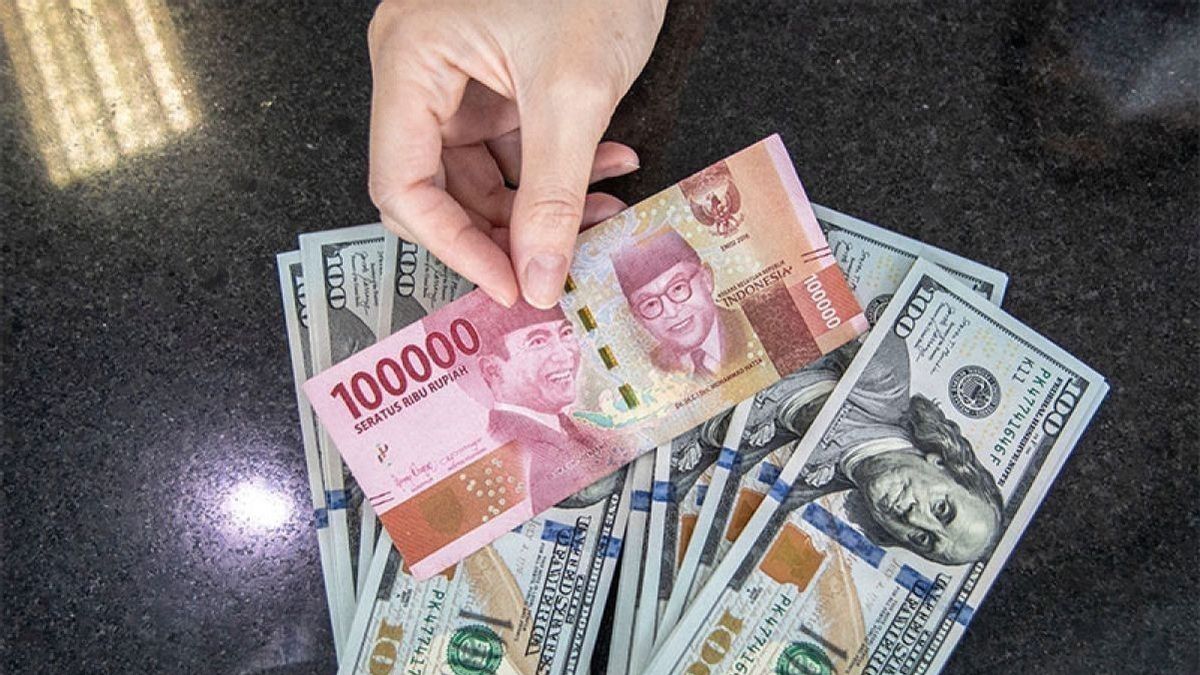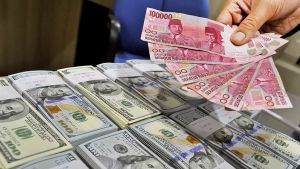JAKARTA - The rupiah exchange rate in trading Tuesday, July 30, 2024 is estimated to have weakened against the United States (US) dollar.
Quoting Bloomberg, the Rupiah exchange rate on Monday, July 29, 2024, the rupiah exchange rate on the spot market closed up 0.12 percent at the level of Rp. 16,281 per US dollar. Meanwhile, the Jakarta Interbank Spot Dollar Rate (Jisdor) exchange rate of Bank Indonesia (BI) closed higher by 0.04 percent to a price level of Rp. 16,286 per US dollar.
Director of PT.Laba Forexindo Berjangka Ibrahim Assuaibi conveyed the growing speculation over the cut in interest rates, following some encouraging signs from last week's PCE price index data, which is the Fed's preferred inflation gauge. The reading results put the Fed meeting this week in the main focus.
"While the central bank is expected to maintain interest rates, any signal regarding its plans to cut interest rates will be closely monitored. According to the CME Fedwatch, traders are almost fully expected to cut 25 basis points in September," he said in a statement, quoted Tuesday, July 30.
In addition, concerns about slowing China's economic recovery, following a series of weak readings throughout July, sparked a prolonged sell-off in the Chinese market. US political uncertainty also weighed on the Chinese market, especially with investors unsure about how the next US administration would treat Beijing.
Ibrahim said the focus this week is on data on major purchase managers' indexes from the country to get more clues about business activities.
From an internal perspective, Indonesia's economic growth at the end of 2024 is estimated to only move stable at the level of 5.1 percent. Meanwhile, in the first quarter of 2024, the Indonesian economy grew 5.11 percent. Strong fiscal expansion, election-related spending, and investment will most likely maintain GDP (Gross Domestic Product) growth above 5.0 percent this year.
Momentum that drives the Indonesian economy will decrease slightly in the second semester of 2024. This is due to the rebound in consumer purchasing power and the fading of the impact of election spending. Household consumption grew by 4.9 percent yoy in the first quarter, or still below the average period before COVID-19, which was 5 percent. We argue that the slow pace of job creation in the formal sector could reduce consumption increases in the second half.
SEE ALSO:
Industrial expansion that provides added value and employment in the formal sector, as well as a reduction in food inflation may be needed to increase consumer purchasing power, especially for low to middle income households.
In addition, the mineral processing sector with high capital intensity is currently still the main target of foreign investment. External demand can be maintained amid improving metal exports and the strong demand for Indonesia's main commodities, including coal, palm oil, as well as oil and gas.
The World Bank will maintain an average inflation estimate in 2024 of 2.9 percent yoy, although the rupiah is weakened, the average inflation is 2.8 percent yoy in the first semester of 2024. The reduction in food inflation due to improving weather conditions and stable subsidized energy prices will offset the increase in core inflation.
Ibrahim estimates that the rupiah will fluctuate but close lower in trading on Tuesday, July 30, 2024 in the price range of IDR 16,270 - IDR 16,340 per US dollar.
The English, Chinese, Japanese, Arabic, and French versions are automatically generated by the AI. So there may still be inaccuracies in translating, please always see Indonesian as our main language. (system supported by DigitalSiber.id)












